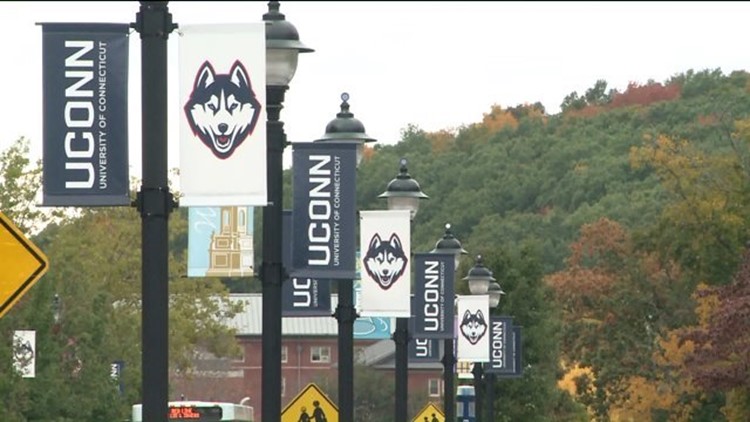STORRS--A string of recent shootings on college and university campuses nationwide has prompted the University of Connecticut to prepare for anything.
"It's very unlikely, a low probability incident, but it could happen, as we've seen through the country," said UConn President Susan Herbst.
UConn leaders held a roundtable discussion on campus safety Wednesday afternoon. President Herbst was joined by UConn Police Chief Barbara O’Connor and mental health officials.
"The last thing I want for students to walk around in fear around campus," said Elly Dougherty, associate vice president of student affairs and UConn's dean of students.
Leaders talked about campus safety, emergency preparation and mental health issues.
Herbst will be a teaching a class this semester at the Storrs campus, and like many college professors worries about classroom safety.
"What would happen if someone showed up to my classroom with a weapon and wanted to kill people? " she said.
Herbst discussed possible ideas about ways professors and students can communicate safety strategies if a mass shooter was on campus.
Herbst wondered how educators could prepare students to react without striking fear in them.
"Should professors in the beginning of a semester talk about this? Or this that kind of an off-way what is a joyful thing, taking a class in college?" Herbst asked members of the forum.
"I think this string of recent string of events happening on campuses across the country is a wake up call to UConn," said one student, who told administrators she believed all students and staff should participate in suicide prevention and active shooter drills.
Neither drill is mandatory, but the university says many UConn faculty members, staff and student organizations have completed the exercise.
"Since you can't train everyone at once, what's the priority order? I think it's the people with the most contact with students, who see the most students, have the most organizations or offices," Herbst said.
Herbst say the drills are big operations to undertake, and she isn't sure public safety can handle an increased demand, but noted there could be ways to expand the training to reach more students.
"Maybe we should be more systematic and train them, in terms of active shooter training and suicide prevention training," Herbst said.
Leaders also point out the UConn "Student Care Team" can help. The multidisciplinary team made up of students, mental health officials, police and academic deans meets regularly to evaluate behaviors by students that are perceived to threaten or hurt themselves or others. The university says they have a heavy case load of students they are evaluating, but it only represents a small fraction of the student population.
"The earlier they can talk to a professor of mentor, the more likely they can prevent a crisis from occurring," said Erin Cox, a clinical psychologist at UConn Counseling & Mental Health Services.
Cox says important for students to know their fellow students and resident hall residences, and report any unusual behavior.
"If it just doesn't look right, it doesn't feel right, we're here 24/7/365," said UConn Chief of Police Barbara O'Connor.
Administrators point out the 2007 Virginia Tech shooting when 33 people were killed as a turning point for mental health awareness and for campus safety protocols.
"An individual action can save lives, a professor taking a belt off and locking the door up saved the students in that classroom in Virgina Tech," said Chief O'Connor.



